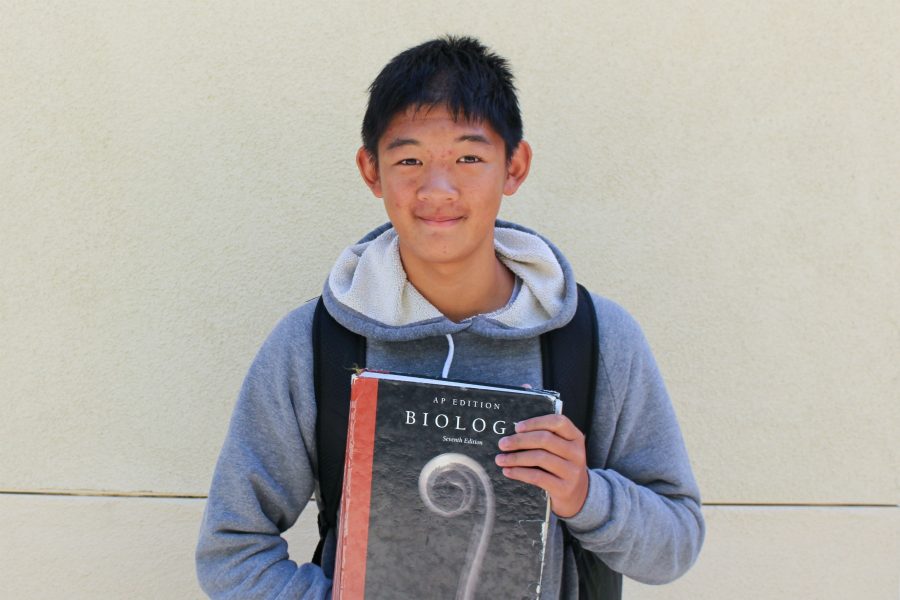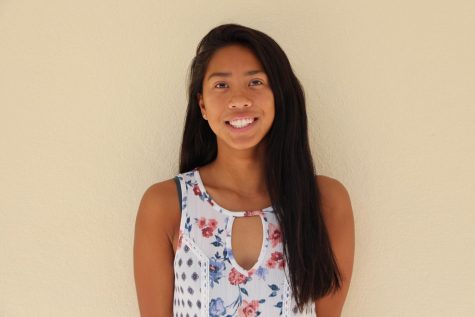Chris Yip: Science Savant
In one of his first ever Instagram posts, junior Chris Yip shares a picture of a No. 11 blade scalpel with the caption, “Monday Medical Trivia – What type of scalpel blade is this? What is it used for?” Most students wouldn’t know that the blade is used for stab incisions, and most students would question such a post. However, it is clear that science plays a crucial role in his everyday life. While others tend to allow emotions and opinions cloud their perspectives, Chris’s love for science allows him to view the world in an objective manner.
“I try to think about a lot of things in terms of how does it work, how does everything come together to make it work?” Chris said. “I try to look at things in a more logical perspective. A lot of things [fall in] gray areas, but a lot of things are black and white and you can [ask about] how it works.”
A few childhood science fair projects helped inspire Chris’s passion for science. In the sixth grade, he participated in one of his first major science projects that focused physics through testing bridge strength. However, it was only while taking Biology Honors with Jacob Russo in his freshman year that Chris fell in love with biology.
“[Sometimes] during my free time, I look into anatomy and medicinal stuff,” Chris said. “I got a couple of textbooks from my uncle, he’s an optometrist, but he didn’t need some of his medical textbooks anymore, so I got a couple of them from him. Sometimes, in my free time, I’ll look through those.”
Nowadays, many students are divided between STEM — science, technology, engineering and math—courses and humanities — English and history, among others. While these areas of study are distinct and equally important, Chris leans toward STEM.
“Writing and history I know are important things, but I’m just not interested in them as much. I really don’t like the open-endedness of everything and I really don’t feel like there’s one super clear goal. In science, you’ve got the goal of medicine, you’ve got the goal of how do I save this person’s life? How do I improve the quality of life?”
During the summer, Chris attended two different internships — one at Johns Hopkins Hospital and the other at Washington University in St. Louis. In both, Chris was the youngest intern by two or three years. While on staff, Chris experienced everyday worklife in a hospital including cadaver dissections, dealing with a patient who was hit by a car while playing Pokemon Go and even gunshot wound victims.
“[They were] pretty general internships at a hospital,” Chris said. “In both of them, I was rotated around different departments like radiology, pharmaceuticals, E.R., internal medicine, pathology and physical therapy.”
In all the different fields of science, Chris finds himself most attracted to fields that require one to be prepared for surgery within a moment’s notice. Although he is known for his consistent and ordered personality, he is the most interested in jobs where he can expect different challenges every day.
“An acute critical care surgeon is by far one of the most interesting jobs in a hospital,” Chris said. “I mean there are a lot really good jobs in the hospital, but you need to be able to diagnose illnesses and stuff — I really like acute critical care surgery, it’s pretty much trauma surgery, emergency surgery. I like it because it’s more varied. A lot of doctors are going to wake up knowing ‘oh in two months I’m going to operate on Suzie Whatever for some brain tumor or something.’ I like the variety and generally I feel excited and more interested [in it] than other fields.”
To Chris, the most important reason why he is looking to pursue a career in science is because of the direct impact it has on people’s lives. It is the satisfaction of knowing that he would be saving lives that drives Chris to learn more about medicine and human anatomy.
“I don’t think I would be satisfied going to work at Apple every day [or any tech company]. I mean that’s a good job too but I feel going to work as a doctor or something would allow me to have a better impact on other people… working with other people [and] saving lives, that’s got a bigger impact.”




